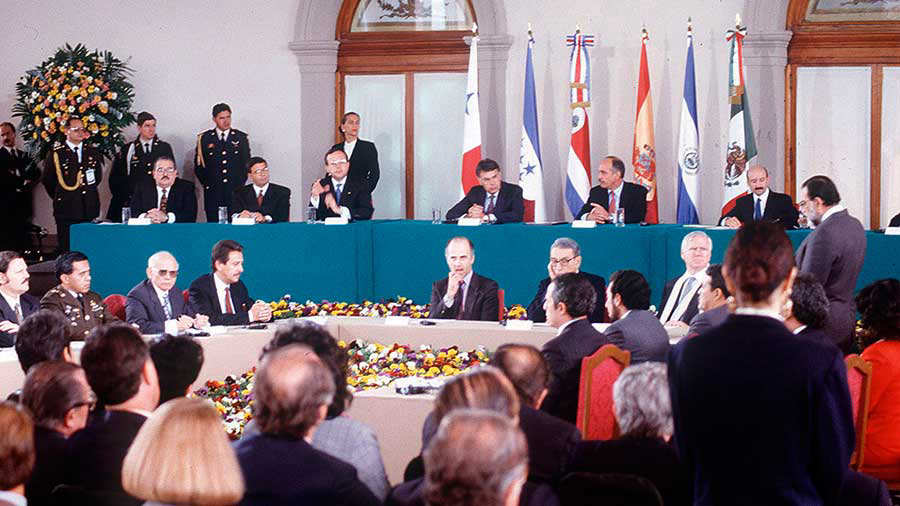
Nearly a hundred national and international personalities, including academics, politicians, historians, peace signers and former diplomats, signed an open letter to President Bukele.
Worried about the statements of President Nayib Bukele in the village of El Mozote on December 17 last year, in which the historic deed of January 16, 1992 marking the beginning of peace in El Salvador after 12 years of war, 97 national and international personalities, political leaders, academics, historians, and peace signatories signed an open letter addressed to the president.
We refer specifically to your allusions to the armed conflict and the peace accords as a farce. U.S
He is concerned that, in his capacity as president, he will treat important matters lightly. El Salvador certainly still has enormous economic and social challenges. It was these problems, with deep historical roots, that led to a bloody armed conflict that claimed more than 75,000 victims and left orphans and family members helpless and heartbroken who deserve respect, ”says part of the letter.
SEE: According to analysts, President Bukele has colored peace deals
The letter is also supported by former US White House officials and former heads of UN missions, MEPs, rectors and professors from local universities such as the UCA and international universities such as Yale, from the United States.
The letter indicates that without the peace agreements, the armed conflict would have destroyed lives and sabotaged the Salvadoran economy. “The accords were neither useless nor a sham,” they say.
They also argue that the progress El Salvador had made since the pact was signed, since it began building a democratic society that would enable the population to have a reliable electoral system that would allow them to rise to power. change without political violence and some “armed forces away from politics and subordinate to the civil power. An environment of freedom in which civil society can debate the country’s problems without fear ”.
The letter’s signatories also emphasize the creation of a “free press that contributed to
uncover cases of corruption and shed light on problems that need to be corrected ”, through free access to public information.
They also say that the agreements have a reliable legal system of the country, the effective separation of the
powers of the state allowing respect for the institutions, the establishment of the Office of the Attorney for the Defense of Human Rights and that the work of the Truth Commission has facilitated the first steps to put an end to the “impunity” in the country. which is not yet completed, but the government can help make it a reality.
For the signatories, the war left the teaching that conflicts are resolved by roads. They admit that there are things that need to be overcome, such as poverty and the promotion of peace, but they explain that the armed conflict left the doctrine that they needed to be resolved in some way other than “preaching hatred and division between brothers,” without military intervention. “It is up to all citizens and in particular to you, President Bukele, as Head of State, to honor the memory of the victims of the armed conflict and to enhance the positive heritage of the peace accords,” they insist.
YOU MAY BE INTERESTED: “Deep Ignorance” Indicates President Bukele’s Words